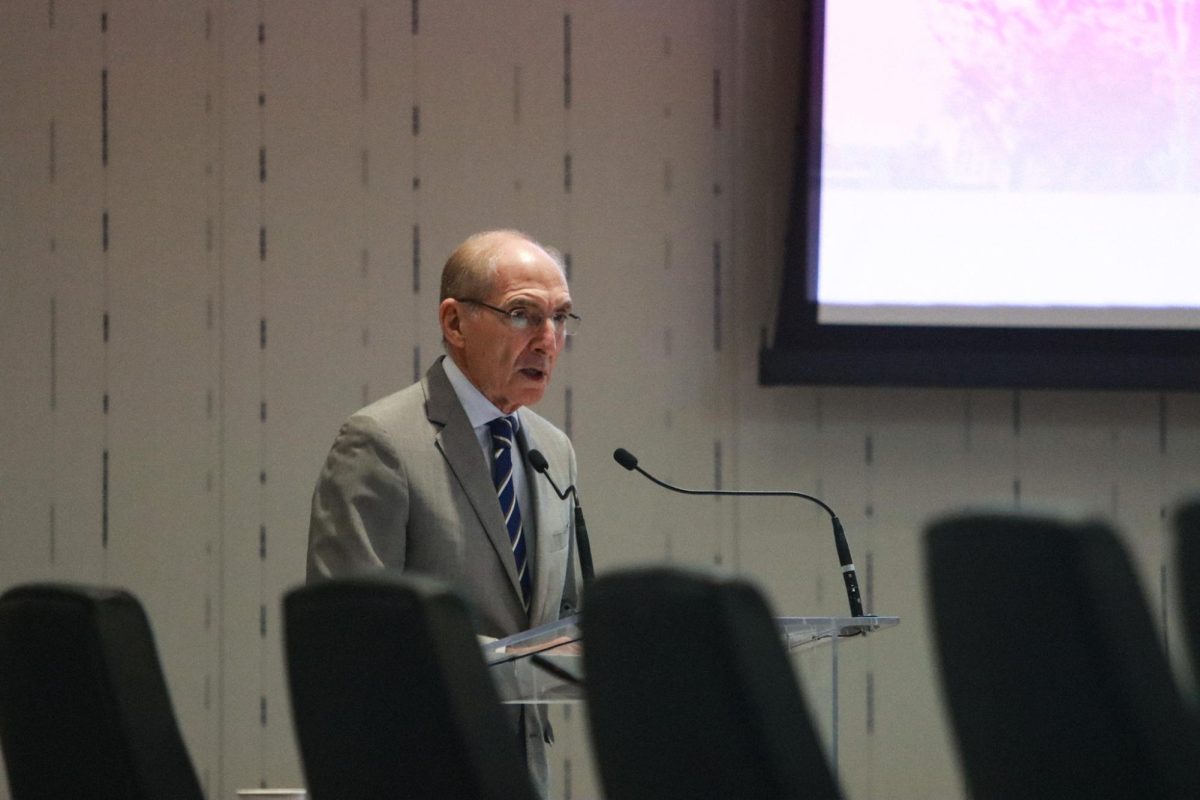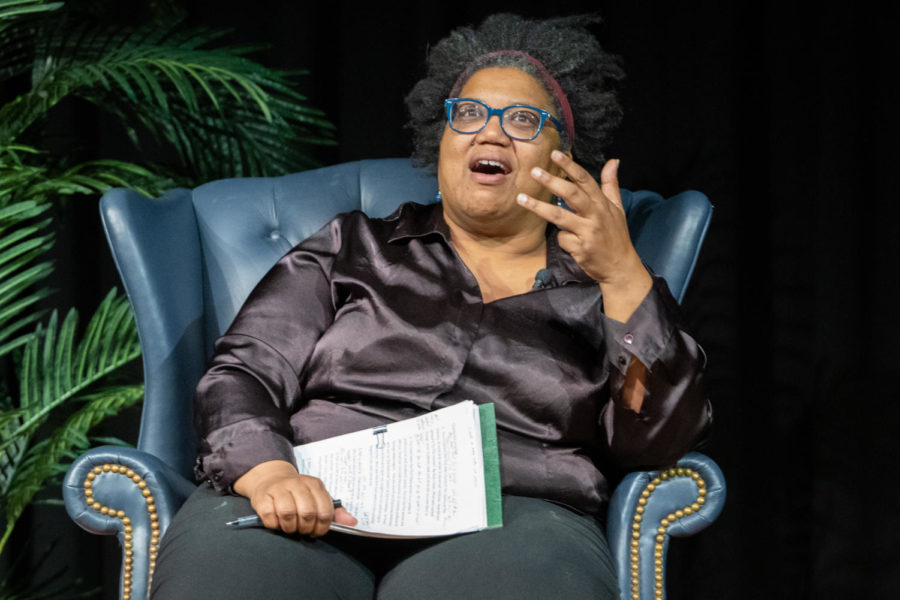‘Elevating Speakers’ series explores stories of Black women
Nikki Brown speaks during the Elevating the Stories of Black Women: Dr. Virginia Alexander and Shirley Chisholm event on Monday, March 27, 2023, at the Farish Theater in Lexington, Kentucky. Photo by Travis Fannon | Staff
March 30, 2023
The University of Kentucky Center for Health Equity Transformation hosted the “Elevating the Stories of Black Women: Dr. Virginia Alexander and Shirley Chisholm” event with Dr. Vanessa Northington Gamble and Nikki Brown.
Held on Monday, March 27, this marked the second event of the Center’s “Elevating Speakers” series. Gamble discussed the adversity she faced in her journey to becoming a physician along with the story of a historic physician, researcher and advocate Virginia Alexander.
Brown, associate professor of history and Africana/African American studies at UK, joined Gamble on stage to lead a discussion on empowerment through storytelling.
Gamble created a course at the University of Wisconsin in the late 1980s to open people’s eyes to the history of race and racism in American medicine.
“I wanted my students to learn … I also wanted my colleagues to know that there was a history of African Americans in medicine, and also the importance of learning about the history of race and racism in American medicine,” Gamble said. “I wanted my students and my colleagues to know that this field existed and the other thing I wanted them to know is to understand how race and racism has had an impact in the history of American medicine and healthcare.”
Gamble said she became aware of Alexander’s story through the guidance of her college mentor, Helen Dickens. While doing research to prepare course material and sources for her biographical work, Gamble noticed the power in Alexander’s story.
“One of the things I want to do in this book … is not to present her as this heroic Black woman against the odds,” Gamble said. “She was a woman who had flaws, who had failures, who had disappointments and also joys and accomplishments.”
Alexander failed her first year at the Women’s Medical College of Pennsylvania, due to prejudice and even heartbreak, but eventually returned, according to Gamble.
“I understand the loneliness of being the one and only. I understand what it means when someone does not think that you are the physician … Virginia Alexander, she would go to a hospital and people would treat her with disrespect,” Gamble said.
Lafe Taylor, a member of the Community Action Board with the Center for Clinical and Translation Science, brought his daughters to hear Gamble speak. He saw the talk as an opportunity for Gamble to encourage and motivate the future of medicine and humanity as a whole.
Younger generations have become well aware of the gaps within the healthcare and social systems and are looking for ways to alleviate the stress this places on society. Maya Owens, a University of Kentucky graduate student, also attended the event. She is looking to become a doctor and scientist.
“I want to gain the trust of Black individuals and people of color. There (has been) a lot of distress in science and medicine over the years because of different events that have happened in history,” Owens said. “So I want to first gain the trust of people of color and improve bringing awareness first to people that may not want to go into medicine but maybe lobbying to local politicians that this matters.”



























































































































































